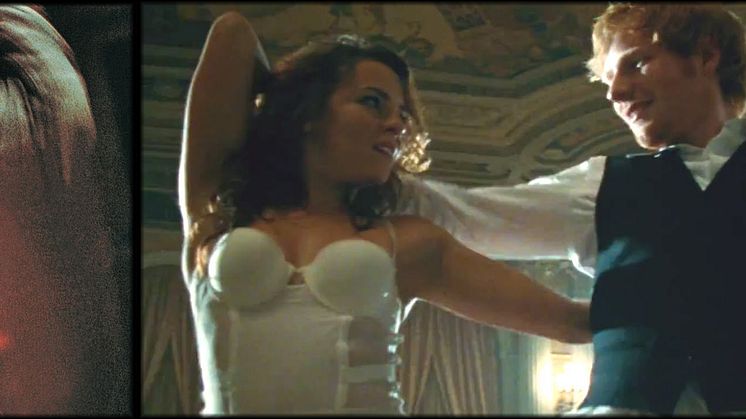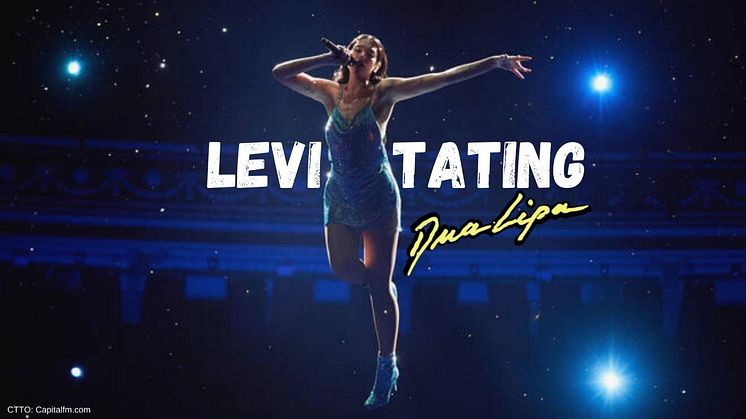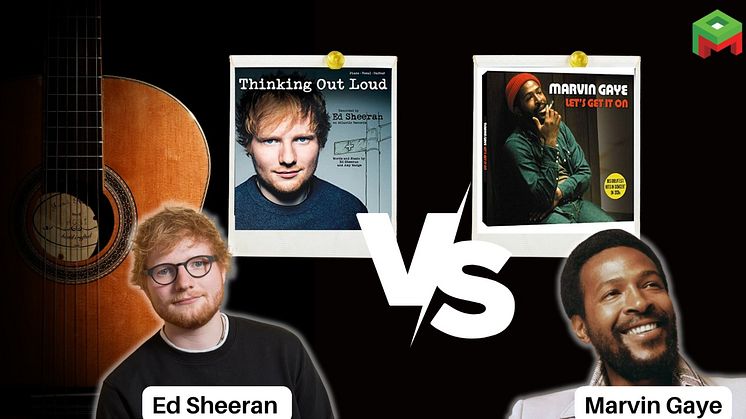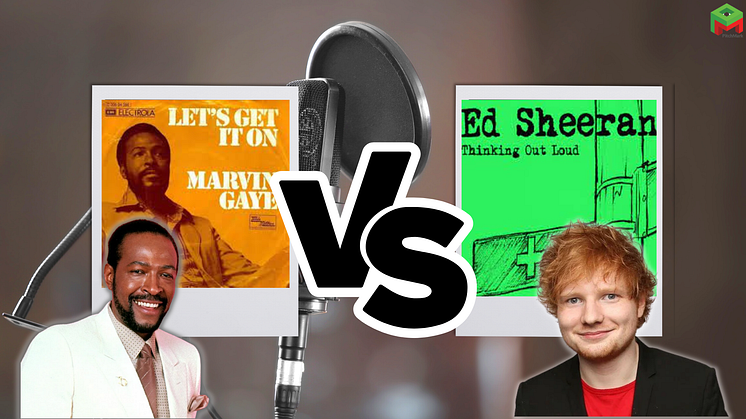
News -
Ed Sheeran has to face the music over alleged rip-off of Marvin Gaye song
A New York based federal court has thrown out the request by musician Ed Sheeran to dismiss a copyright infringement suit by the heirs of Ed Townsend, who wrote the R&B classic, "Let's Get It On", with Marvin Gaye. They claim that "Thinking Out Loud" by Sheeran is similar to "Let's Get It On".
Sheeran's case is not helped by the fact that he once seamlessly transitioned between the two songs during a concert. This was referenced by Judge Stanton as reason for why “Thinking Out Loud” might not be so original.
The case will now proceed to a jury who will decide whether the harmonic rhythm of “Let’s Get It On” is too common to deserve copyright protection and, if not, whether Sheeran violated its copyright.
In case you've not heard the two songs in question, here's the 1973 song Let's Get It On by Marvin Gaye, and here's Ed Sheeran's Thinking Out Loud, released in 2014.
Musician and YouTuber Rick Beato has weighed in on the debate in a video that compares the two songs in question. He said they have the "same tempo and chord progression… the groove is exactly the same. Not just that, but both songs have the "same drum sound, same bass sound, same snare sound."
Beato asks a question: "…is it a derivative of it? Of course it is. It's closer than Blurred Lines was with Got To Give It Up." Beato is referring to the copyright infringement lawsuit by the Gaye family against Robin Thicke and Pharrell Williams which ended in the Gaye family being awarded US$5 million in 2018.
Despite the amount of similarity between the songs, Beato was keen to make a point: "But the melody and the lyrics are completely different" and that it is at the chorus that the songs diverge.
While we think melody plays a big part in differentiating between the two songs, the court will have to consider whether Sheeran dug a hole for himself by transitioning between the two songs seamlessly in concert.
Meantime, Ed Sheeran is appearing to be a target of copyright trolls just by virtue of him being famous. And it seems everyone wants a piece of him. In 2017, Sheeran agreed to give up part of the ownership of his hit song "Photograph" as part of a settlement to a US$20 million lawsuit.
Songwriters Martin Harrington and Thomas Leonard, who wrote the song "Amazing", which they claimed Sheeran ripped off, are now listed as co-writers to the song, thereby gaining a significant share of the royalties.
In the same year, a songwriter who was one of the people who wrote the TLC song, "Scrubs", was given a writing credit on Ed Sheeran's "Shape Of You". Kandi Burruss, her co-writer Tameka Cottle and producer Kevin Briggs have been added to the song's credits.
In November 2018, Ed Sheeran settled out of court with two Australian songwriters over a copyright lawsuit they brought against a song “The Rest of Our Life” Sheeran had co-written with country music stars Tim McGraw and Faith Hill.
Besides the heirs of Ed Townsend, the song Let's Get It On is partly owned by Structured Assets Sales, which brings a corporate element to this lawsuit. When Ed Townsend passed away in 2003, Structured Asset Sales bought one third of the copyright to Let's Get It On. As it owns one-third of the song, it is asserting a stake in the US$100 million lawsuit.
Structured Asset Sales is a company owned by David Pullman, an investment banker who is best known for "Bowie Bonds" back in 1997, in which he got David Bowie to partner with Prudential Insurance Company and raised US$55 million by promising investors income generated by Bowie's back catalog of 25 albums.
The 25 albums were used as the underlying assets for Bowie bonds. Bowie was essentially forfeiting royalties for his 25 albums for the life of the bond. The value of the bonds began to decline as online music and file sharing grew in popularity, decreasing album sales. They were downgraded by Moody's in 2004 to a grade just above junk bonds. But the rise of legal online music retailers renewed interest in the bonds in the late 2000s. The Bowie bonds matured and were redeemed in 2007 as originally planned, without default, and the rights to the income from the songs reverted to Bowie.
Pullman went on to create similar bonds on the future income stream of artists such as James Brown, Ashford & Simpson, the Isley Brothers, and the Holland-Dozier-Holland publishing catalogs.
Besides betting on the future earnings it seems Pullman is now interested in enforcing the copyright of the assets, or part of the assets it owns.
And it might be easier for Structured Assets as a landmark verdict last year awarded damages for copying a musical style. A lawsuit brought by the Gaye family against musicians Robin Thicke and Pharrell Williams for their song Blurred Lines which sounded similar to Marvin Gaye's Got To Give It Up resulted in a win for the Gaye family.
Judge Jacqueline Nguyen dissented against the verdict: "The majority allows the Gayes to accomplish what no one has before: copyright a musical style," she writes. "'Blurred Lines' and 'Got to Give It Up' are not objectively similar. They differ in melody, harmony, and rhythm. Yet by refusing to compare the two works, the majority establishes a dangerous precedent that strikes a devastating blow to future musicians and composers everywhere."
The Blurred Lines case and the many lawsuits against Ed Sheeran might start wearing down popular musicians, who will start looking over their shoulder for copyright claims whenever they release a song. We are not sure if this is good for the industry.
Related links
- Thinking Out Loud (Let's Get It On) by Ed Sheeran
- Let's Get It On by Marvin Gaye
- Thinking Out Loud by Ed Sheeran
- Rick Beato's channel: ED SHEERAN VS. MARVIN GAYE LAWSUIT: Let's Compare!
- Ed Sheeran Gives Up Part Ownership of 'Photograph' in Settling Copyright Lawusit
- Ed Sheeran, Tim McGraw, Faith Hill settle copyright lawsuit
- Ed Sheeran Hit With US $100M Lawsuit For Allegedly Copying ‘Let’s Get It On’
- Bowie Bond
- Marvin Gaye family prevails in 'Blurred Lines' plagiarism case
- "Blurred Lines" Verdict Upheld by Appeals Court in Win for Marvin Gaye Family



